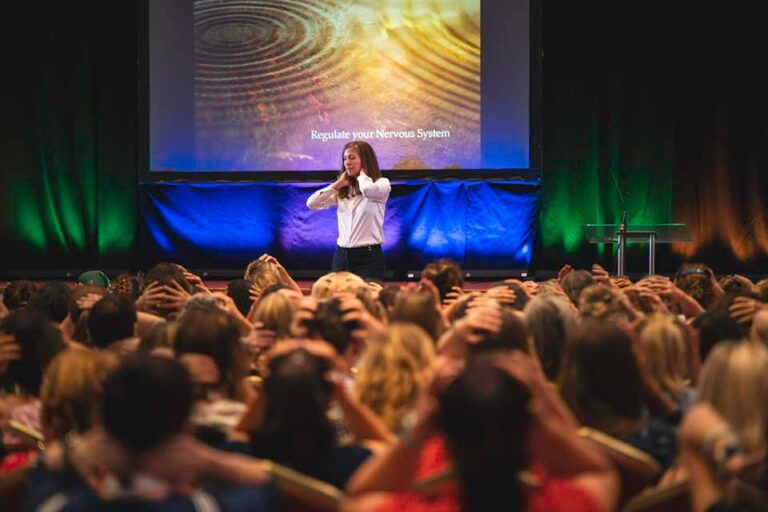Albert Einstein famously said, “We can’t solve problems by using the same thinking we used when we created them.” Yet, often, we find ourselves stuck in repetitive patterns and ways of thinking that limit our growth and potential. In order to embrace true innovation and personal evolution, we must be willing to step outside of our paradigms—those deeply ingrained belief systems that shape our perceptions, decisions, and lives.
So let’s explore what paradigms are, why they are essential yet limiting, and how to challenge and expand them to create new opportunities for ourselves.
What is a Paradigm?
A paradigm is like a box we live in—a belief system that defines our view of the world and our place in it. This box can include beliefs about ourselves, others, and even how we think things should work. Often, these beliefs are not entirely our own; they’re shaped by external authorities, cultural norms, and societal expectations.
Paradigms help us make sense of our experiences and give structure to our lives. For instance, they shape our views on success, relationships, career paths, and personal growth. But while paradigms offer comfort and stability, they can also restrict us from seeing new possibilities.
Example: Imagine being the first person to envision a vehicle, telephone, or airplane. These groundbreaking ideas required thinking outside the conventional “box” and asking entirely new questions about what was possible. Without stepping outside of the existing paradigm, these innovations would never have been realized.
Why We Need Paradigms (and Why They Can Hold Us Back)
Paradigms serve a vital role in our lives. They give us a framework for navigating the world and help us feel connected to something larger than ourselves. On a basic level, paradigms enable us to function with a sense of predictability and security.
From an evolutionary perspective, humans have relied on paradigms for survival. Historically, our “box” was often about group safety—staying with the tribe, adhering to shared values, and avoiding risks. These survival-based paradigms, though protective, can become burdensome when we apply them rigidly in modern contexts.
The Burden: When our paradigms are grounded in fear or caution, they can inhibit personal growth. Clinging to outdated belief systems, we may find ourselves stuck, repeating the same patterns and struggling to make meaningful changes.
What Happens When We Get Stuck in Our Paradigms?
Without challenging our paradigms, we risk limiting our potential. Unquestioned belief systems can lead to stagnation, preventing us from exploring new perspectives or opportunities. William James, the father of psychology, noted that a person can change their life by altering their perceptions. By re-examining our beliefs, we open the door to new ways of thinking and ultimately, personal transformation.
Reflection: Consider a time when you resisted change because it felt too risky or unfamiliar. Reflecting on this experience might reveal how paradigms can act as invisible barriers, keeping us within the boundaries of our comfort zones.
How to Break Free from Our Paradigms
The good news? We have the power to challenge and expand our paradigms. Here’s how:
1. Cultivate Curiosity and Question Assumptions
Breaking out of a paradigm begins with curiosity. By asking ourselves, “What am I not seeing?” or “How else might I look at this?” we start to see beyond the boundaries of our current box. This questioning approach allows us to soften the rigidity of our beliefs and explore fresh perspectives.
2. Engage in Self-Reflection
Self-awareness is essential for understanding the paradigms we hold. Reflect on areas where you feel resistance or limitation. What beliefs underlie these feelings? Bringing attention to these patterns reveals the edges of our box and helps us identify where growth is possible.
3. Take Small Risks Outside Your Comfort Zone
Growth doesn’t happen without a willingness to take risks. Stepping outside our comfort zone, even in small ways, can expand our beliefs about what’s possible. Try a new self-care strategy, take a different approach to a familiar problem, or engage in conversations with people who have different viewpoints.
4. Seek Communities that Challenge & Support You
Having people around who support our growth, challenge and hold us accountable, and encourage new ideas is invaluable. Such communities provide a space to explore, take risks, and receive feedback. Whether it’s a friend, mentor, or group of like-minded individuals, being part of a community helps us stay accountable to our journey beyond our paradigms.
5. Practice Self-Compassion
As we push the boundaries of our paradigms, setbacks are inevitable. It’s important to approach these moments with self-compassion, viewing them as part of the growth process rather than failures. Self-compassion allows us to learn from each experience and keeps us motivated to keep exploring and evolving.
The Ongoing Journey of Evolution
Breaking free from paradigms isn’t a one-time event; it’s an ongoing process of exploration and self-discovery. Every time we question a belief, try a new approach, or see the world from a different perspective, we expand our understanding of what’s possible. Through curiosity, courage, community, and compassion, we cultivate the innovation and growth that keep us moving forward.
When we step beyond the limitations of our paradigms, we create a life defined by possibility and freedom. We allow ourselves to continuously evolve, letting go of old patterns and embracing a future that’s shaped by our own unique potential.
Stepping Out, Moving Forward
Our paradigms may provide connection and a sense of belonging, but true growth happens when we’re willing to step beyond their boundaries. By challenging and reimagining our beliefs, we open ourselves up to innovation, resilience, and the chance to create a life that aligns with our deepest values and aspirations.
As we step out of our boxes and move forward, we not only transform ourselves—we become part of the greater evolution of human potential, leaving a legacy of curiosity, inspiration, and boundless possibility for those who come after us.
Much love on the journey 💜
Lisa




